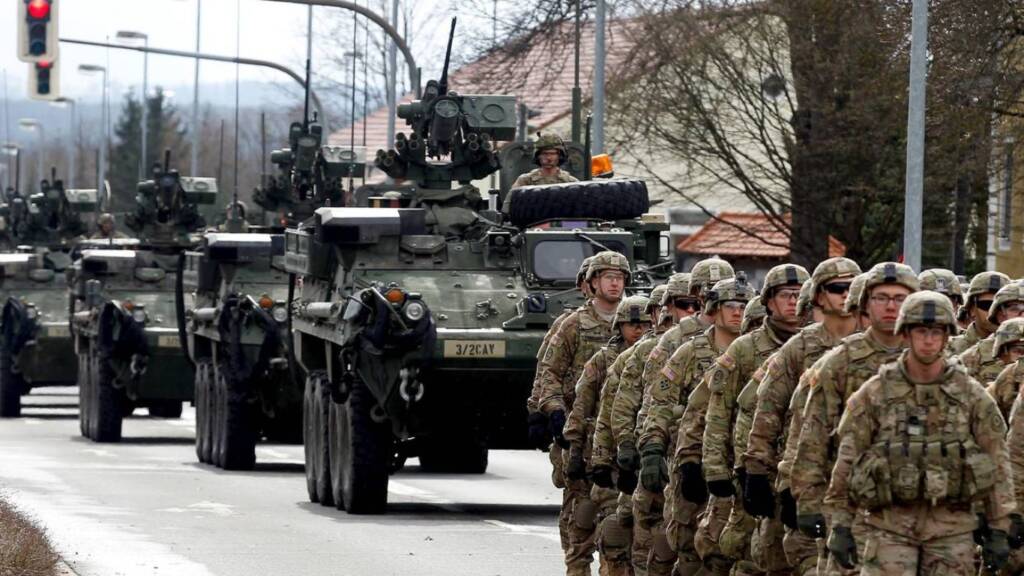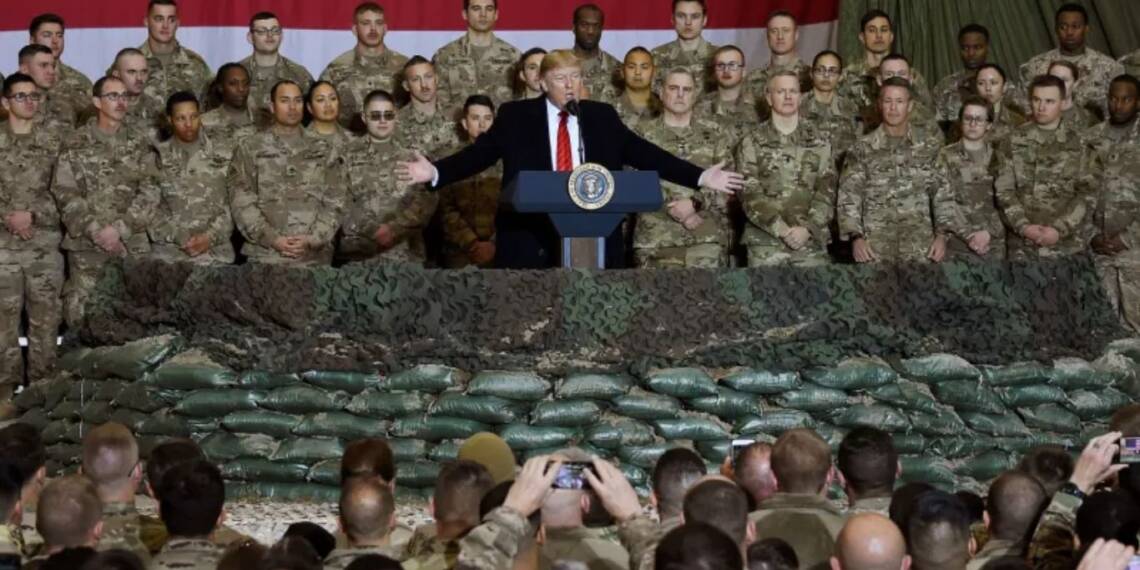Trump is dealing one blow after another to European Union. After dropping his tariff bombshell, the US president is on his way to withdraw 20,000 American troops from European soil. Trump is considering reducing America’s military presence in Europe by 20%, according to Italian news agency ANSA, which cited EU diplomatic sources. If implemented, this move would cut the number of US troops in Europe from approximately 100,000 to 80,000.
The potential reduction reflects Trump’s ongoing reassessment of Washington’s commitments to EU’s security. As per sources, Trump has “consistently” voiced his intention to scale back the US military footprint in Europe during recent discussions with European leaders.
One of the sources argued, “For those [troops] who remain, Trump wants financial contributions from European nations, arguing that these soldiers act as a deterrent, and the costs should not fall solely on American taxpayers,”
Earlier this month, Trump urged NATO member states to allocate 5% of their GDP to defense spending, significantly exceeding the current goal of 2%. Trump remarked, “They can afford it”.
Trump also criticized the disparity in support offered to Ukraine, demanding that the EU step up its contributions. “We’re in there for $200 billion more than the EU. I mean, what are we, stupid? I guess the answer is ‘yes.’ They must think so,” he said Tuesday.
Additionally, Trump has threatened to impose tariffs on the EU, citing its trade surplus with the US. “The EU is very bad for us,” he would say. Against this backdrop, European leaders are rethinking their approach to defense and security. Speaking during a joint press conference with German Chancellor Olaf Scholz, France’s Emmanuel Macron underscored the importance of a unified Europe. He said, “Now that the new administration has taken office in the US, it is more important than ever for Europeans to play their full part in making a united, strong, and sovereign Europe.”
This crisis has reignited debate over whether Europe should establish its own military force. Many argue that Europe must urgently act as a cohesive bloc and gain greater independence in matters of security and defense, especially as US support appears increasingly conditional.
In recent years, the EU has increased its defense spending though. Data showed that European defense expenditures had reached a record high of $240 billion three years back, marking a 6 per annual increase and the seventh consecutive year of growth. The annexation of Crimea in 2014 served as an earlier wake-up call for the continent.

In 2022, the European Commission committed $555 million to support the joint acquisition of defense equipment by EU member states. Spending on equipment and research and development also surged by 16%, reaching a record $ 60 billion. However, forming a unified European defense body remains a complex challenge. It requires unanimous agreement among European Council members. In an increasingly diverse Europe, achieving consensus is no easy task.
From a practical standpoint, the most feasible path forward lies in enhancing interoperability—harmonising military doctrines, training, equipment, and weapons systems. This would enable EU nations to respond to threats more effectively as a united force.
EU should also thank Trump for helping and motivating them to be independent. The US security umbrella has notably neutered the defence apparatus of most of the NATO countries. Trump’s return is now forcing them to grow their muscles back.







